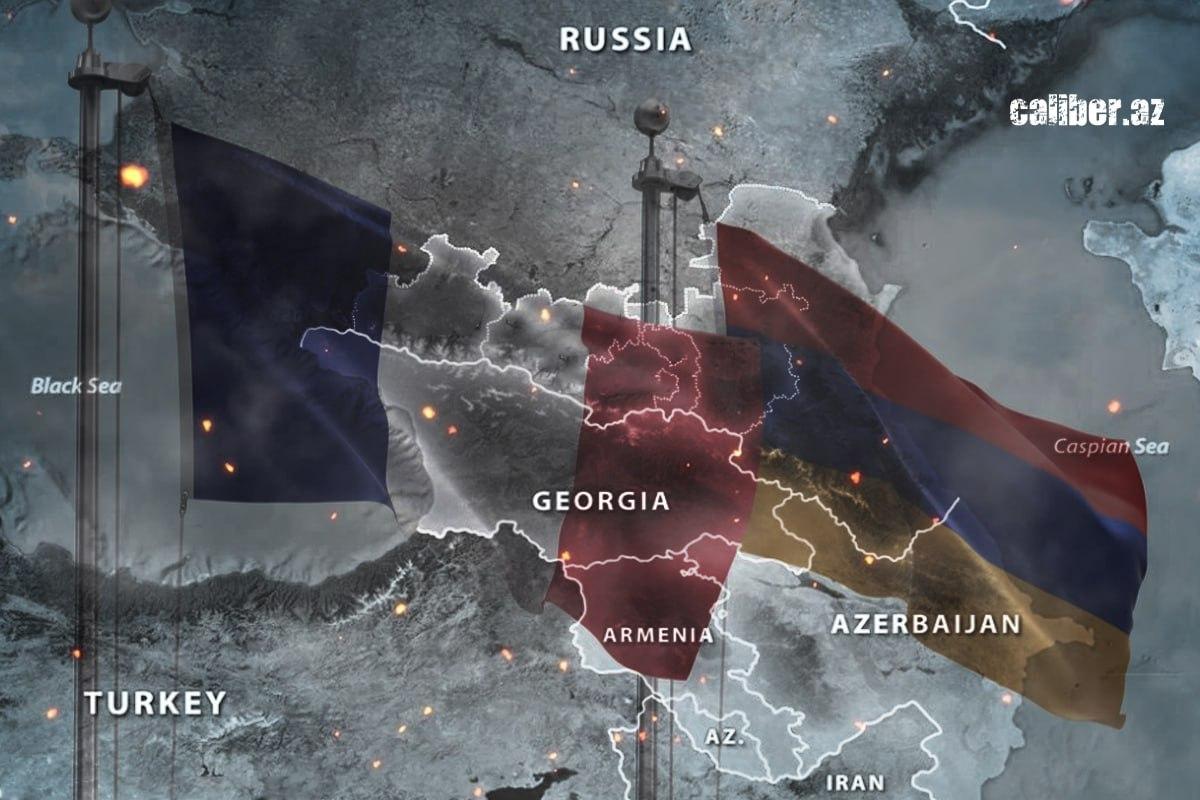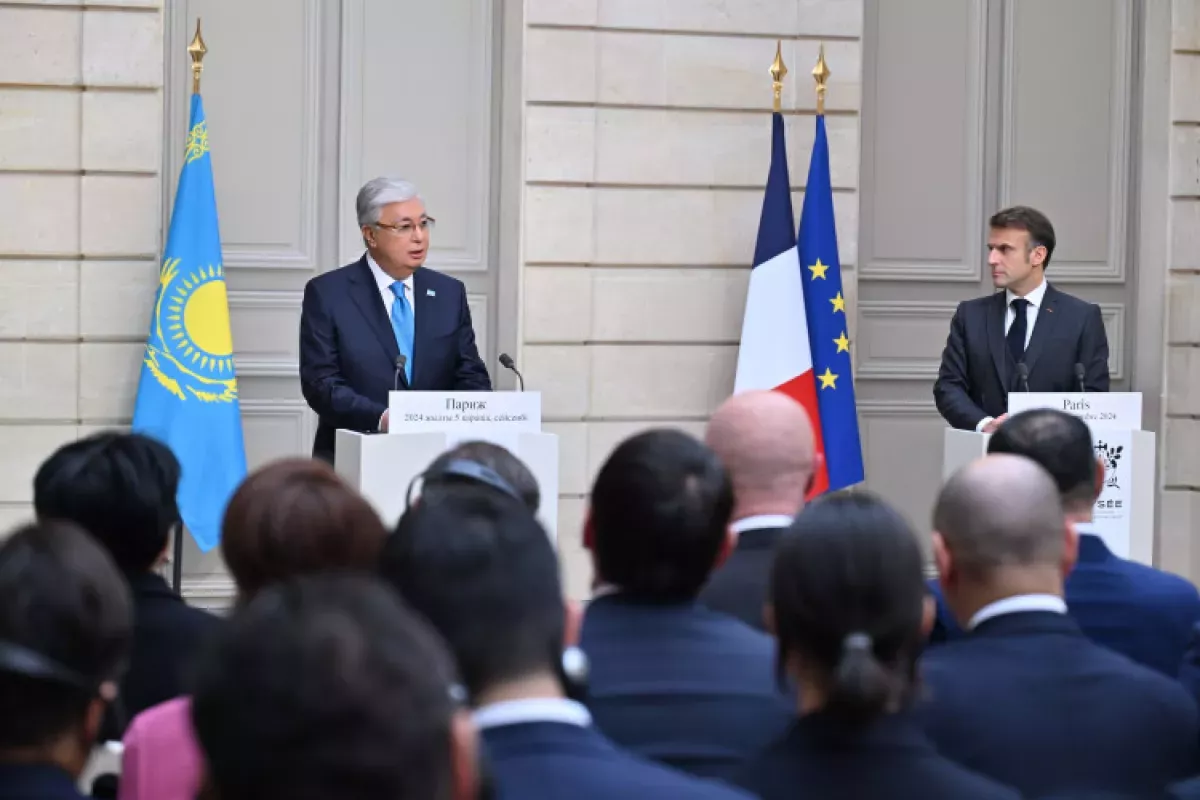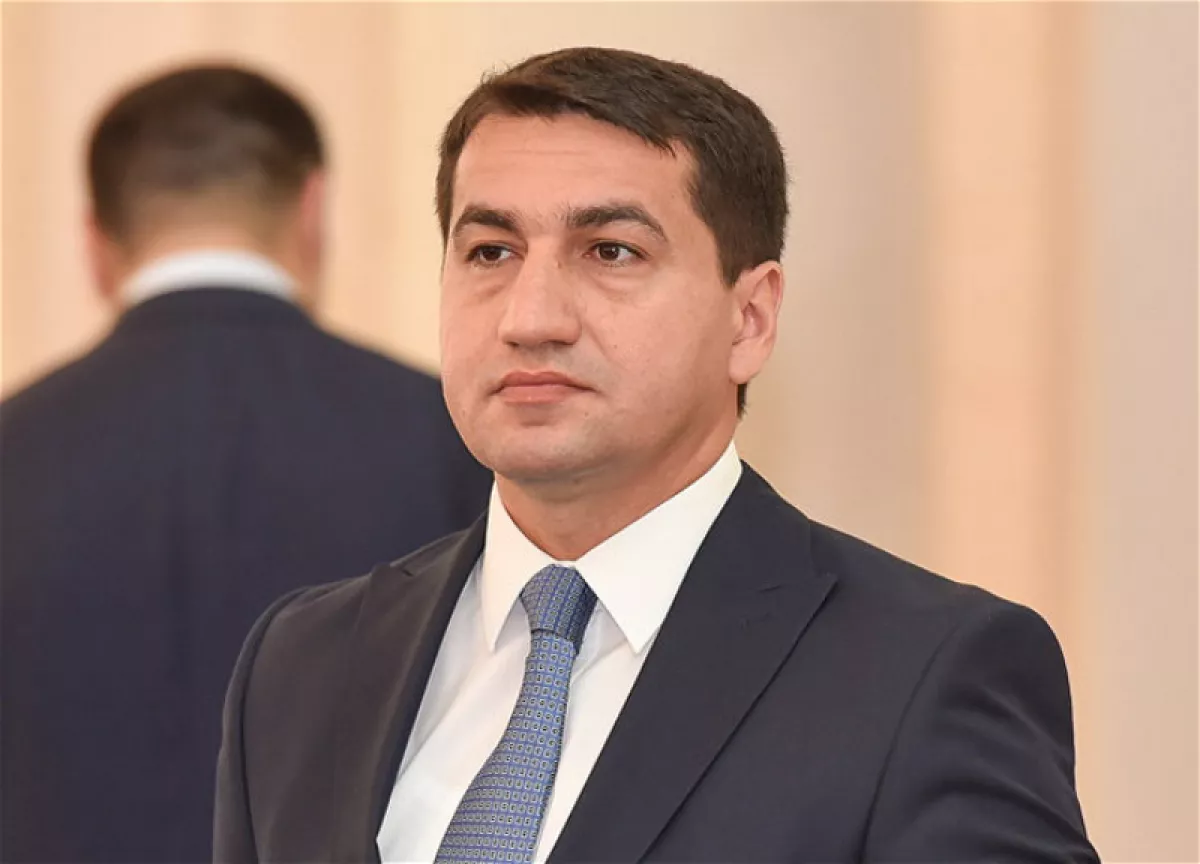Double standards under the French tricolour France’s aim to destabilize the South Caucasus
Among the European Union member states, France is arguably the only country that openly maintains a staunchly pro-Armenian stance and views the South Caucasus as a zone of long-term strategic interest. This conclusion becomes evident upon closer examination of France’s policies — from the time of Armenia’s occupation of Azerbaijani territories to the present day.
Despite official statements by the French leadership professing Paris’s commitment to peace in the South Caucasus, the actual facts tell a different story. France is now actively arming Armenia, fuelling revanchist sentiments in certain segments of Armenian society, and thereby pushing the country towards a new war with Azerbaijan. This, without doubt, destabilises not only the region but also its wider surroundings.
The intent of the French authorities in this direction is further confirmed by a recently published strategic review outlining France’s national security priorities through to 2030, which specifically mentions the South Caucasus. In short, one of the main messages of the document is that a clash between Armenia and Azerbaijan is inevitable — and that Paris, naturally, will provide military support to Yerevan.

“... the accumulation of crises has increased the likelihood of escalation scenarios and the emergence of large-scale disruptive factors. The wars in Ukraine and the Middle East are adding to other overlapping and intertwined crisis hotspots: South Caucasus (Armenia, Azerbaijan); Asia (Taiwan Strait, Korean Peninsula, South China Sea, Myanmar); Africa (Great Lakes, Darfur, Sahel, Horn of Africa),” the review states.
It also notes that France will support the strengthening of EU defence relations with countries located in the South Caucasus and the Balkans — particularly with those aspiring to EU membership. It is not difficult to guess that this refers to Armenia, which harbours illusions about joining the EU and with whom the French Republic maintains “special” relations.
Overall, the published strategic review reflects France’s imperial ambitions in relation to the countries of the region, thinly veiled by Paris’s official calls for Baku and Yerevan to normalise relations and sign a peace agreement. This tone is echoed in a recent social media post by Emmanuel Macron, made during the visit of Armenian Prime Minister Nikol Pashinyan to Paris.
“I reaffirmed France’s support for his [Pashinyan’s] courageous efforts to establish peace with Azerbaijan. The swift signing of a peace agreement between Armenia and Azerbaijan can open a new chapter for all the peoples and countries of the region and beyond,” Macron wrote.
This statement once again highlights the hypocritical policies of the French president who, as France steadily loses its overseas colonies — as seen in the case of New Caledonia — has decided to extend its reach into strategically significant regions, with the South Caucasus chief among them.

In this context, it is worth recalling the false statements made by the French president during a joint press conference with Kazakhstan’s head of state, Kassym-Jomart Tokayev, in Paris last November. Macron claimed that stability in the South Caucasus region, as well as the establishment of lasting peace between Armenia and Azerbaijan, were supposedly in the common interests of France and Central Asia.
“To achieve it, it is necessary to sign a peace treaty between the two countries, which is our goal. Here, I would like to reaffirm France's support for your initiatives aimed at facilitating discussions between Armenia and Azerbaijan,” Macron said without hesitation, also making sure to mention Pashinyan’s “Crossroads of Peace” initiative.
As we see, whenever there is an opportunity, the French side expresses support for Armenian interests in order to strengthen in the international community’s mind the narrative that Armenia, not Azerbaijan, is the true advocate of peace in the region.
Such a French approach is nothing more than part of the European policy of double standards, which Azerbaijan has faced for many years. This fact was once again confirmed in April of this year by the French Minister for European and Foreign Affairs, Jean-Noël Barrot, who took an openly pro-Armenian stance during a meeting of EU foreign ministers in Luxembourg. In particular, he called on “Azerbaijan to sign a peace treaty with Armenia and release all detained Armenians,” implying that the tensions on the border allegedly originate from the Azerbaijani side.
“Regarding Azerbaijan, I am extremely worried about the growing border tension. I hope that the European mission deployed on the ground can be expanded to effectively monitor the situation and suppress that tension. The peace agreement must be finally signed, and those arbitrarily detained and imprisoned must be released,” he said.
Baku has long since drawn conclusions regarding the one-sided policy of the French Fifth Republic and has repeatedly called on the French leadership not to interfere in Azerbaijan’s internal affairs or, more broadly, in regional processes in the South Caucasus.
For Azerbaijan, it is clear that the fundamentally changed balance of power in the region following the 44-day war and the new geopolitical reality shaped by official Baku is a bone of contention for Yerevan’s French “sister,” which does everything to prevent the establishment of peace and stability in the South Caucasus.

In June last year, Hikmet Hajiyev, Assistant to the President of Azerbaijan and Head of the Foreign Policy Department of the Presidential Administration, told journalists that France’s policy of militarisation in the region poses a serious threat amid ongoing normalisation efforts between Azerbaijan and Armenia.
“We do not consider France’s policy in the South Caucasus to be effective. It is a harmful policy because it does not contribute to advancing a peaceful agenda in the South Caucasus,” Hajiyev said.
The fact that France destabilises not only its former and current colonies but also the South Caucasus—where it supports separatist tendencies and separatists—has been repeatedly noted by Azerbaijani President Ilham Aliyev.
“By arming Armenia, it [France] implements a militaristic policy, encourages revanchist forces in Armenia, and prepares the ground for the start of new wars in our region,” the Azerbaijani head of state said in November 2023 during an address at an event on “Decolonization: Women's Empowerment and Development,” organised by the Baku Initiative Group.
Thus, it is entirely clear that France will bear responsibility for any escalation in the region. The emphasis in France’s strategic review on an imminent conflict between Baku and Yerevan—while in reality the sides are on the verge of signing a peace treaty—gives grounds to believe that Paris will continue attempts to provoke yet another crisis, even if such confrontation results in total catastrophe for Armenia.








